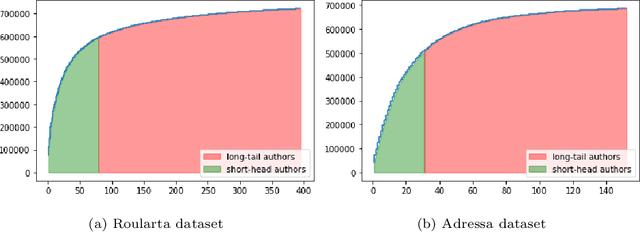Fair Multi-Stakeholder News Recommender System with Hypergraph ranking
Paper and Code
Dec 01, 2020



Recommender systems are typically designed to fulfill end user needs. However, in some domains the users are not the only stakeholders in the system. For instance, in a news aggregator website users, authors, magazines as well as the platform itself are potential stakeholders. Most of the collaborative filtering recommender systems suffer from popularity bias. Therefore, if the recommender system only considers users' preferences, presumably it over-represents popular providers and under-represents less popular providers. To address this issue one should consider other stakeholders in the generated ranked lists. In this paper we demonstrate that hypergraph learning has the natural capability of handling a multi-stakeholder recommendation task. A hypergraph can model high order relations between different types of objects and therefore is naturally inclined to generate recommendation lists considering multiple stakeholders. We form the recommendations in time-wise rounds and learn to adapt the weights of stakeholders to increase the coverage of low-covered stakeholders over time. The results show that the proposed approach counters popularity bias and produces fairer recommendations with respect to authors in two news datasets, at a low cost in precision.
 Add to Chrome
Add to Chrome Add to Firefox
Add to Firefox Add to Edge
Add to Edge